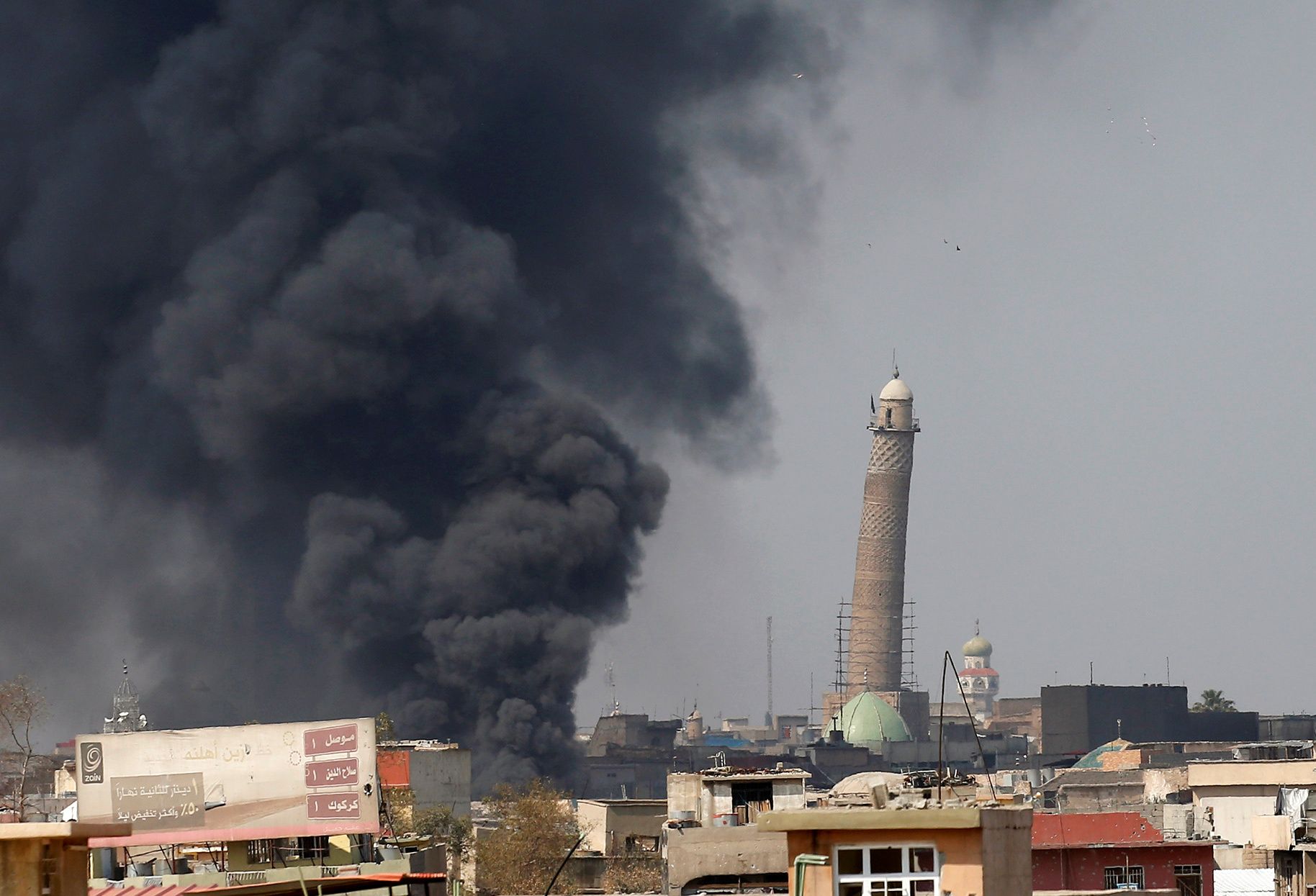
As ISIS's "caliphate" crumbles in Iraq and Syria, there has been much focus on what comes next for the militant group after it loses its main source of authority in the global jihadi community: its claim to govern an "Islamic state."
Increased attacks in the West, a greater focus on its "provinces" outside the Levant and a migration toward a "virtual caliphate" have all been floated. ISIS's media apparatus already seems geared toward expectation management.
However, if comments on Monday from Iraq's Vice President Ayad Allawi are to be believed, an unlikely merger might be in the cards.
Citing what Reuters describes as "Iraqi and regional contacts knowledgeable about Iraq," Allawi claimed there had been "discussions and dialogue between messengers representing Baghdadi and representing Zawahiri," ISIS's and Al-Qaeda's respective leaders. But while dialogue is one thing, a prospective alliance is quite another.
There has been little love lost between the two jihadi groups. A recent ISIS magazine described Al-Qaeda as "Jews of jihad," while Ayman al-Zawahiri has openly condemned Abu Bakr al-Baghdadi since 2015, accusing ISIS's leader of having an adverse effect on the jihadi cause and creating fitna (discord).
Zawahiri has criticized the very existence of ISIS by claiming that the selection process by which Baghdadi became "caliph" was not according to the "Prophetic tradition." Across a series of statements, Zawahiri has worked to undermine the religious foundation on which ISIS depends for its appeal within the jihadi community.
The Syria conflict in many ways captures how far the groups have drifted apart from each other. The country is the site of the original split, in 2013, and Al-Qaeda is now embedded within the armed opposition and focused on generating local support, while ISIS purports to govern a proto-state and is fighting every player in the conflict.
The contest for support has descended to name-calling, with the groups labeling each other the "State of Baghdadi" and "Jolani Front," a reference to Abu Mohammed al-Jolani, leader of former Al-Qaeda affiliate Jabhat Fatah al-Sham.
But although the rivalry between Al-Qaeda and ISIS in Syria commands most of the headlines (and column inches in their own propaganda magazines), the groups' rivalry is playing out globally.
Related: As coalition forces besiege Raqqa, ISIS projects image of calm
The groups are direct competitors in Yemen, where they fight over the ungoverned spaces provided by a full-scale civil war; the Afghanistan/Pakistan border region, where hundreds of fighters have been killed in clashes between "ISIS-Khorasan" and the Al-Qaeda-backed Taliban; and Bangladesh, where affiliates of ISIS and Al-Qaeda in the Indian subcontinent compete over attacks on secular bloggers and religious minorities.
In Somalia, factions of Al-Shabab have been split between pledging allegiance to Baghdadi or Zawahiri, while on the other side of the continent, there is even growing rivalry between Al-Qaeda and ISIS in Nigeria and the broader Sahel/Lake Chad region.
Al-Qaeda has worked to ingratiate itself with populations and issued propaganda presenting itself as a "moderate" alternative to ISIS's indiscriminate barbarism.
In Syria, its franchise Jabhat al-Nusra (later renamed Jabhat Fatah al-Sham) even dropped its Al-Qaeda branding (with Zawahiri's blessing) to better serve its "hearts and minds" agenda. Securing popular support is essential for Al-Qaeda's global longevity and influence, and this is seen in both its words and deeds.
Data from the Centre on Religion & Geopolitics's Global Extremism Monitor show that ISIS affiliates around the world cause a considerably greater proportion of civilian deaths in their attacks than Al-Qaeda's partners.
Across a three-month period in 2016, all of the 80 people killed by ISIS's Afghan affiliate in the quarter were civilians, while for ISIS-linked groups in Bangladesh and Egypt, the figures were 92 percent and 65 percent, respectively.
By comparison, affiliates with links to Al-Qaeda have mostly targeted security personnel rather than civilians. According to our data, all victims of attacks by Al-Qaeda in the Islamic Maghreb and Al-Qaeda in the Arabian Peninsula were security forces personnel.
Amid these tactical discrepancies, there are still echoes of the infamous 2005 letter from Zawahiri to Abu Musab al-Zarqawi condemning the leader of Al-Qaeda in Iraq, ISIS's predecessor organization, for his indiscriminate attacks on civilians.
In a foreshadowing of the ISIS–Al Qaeda split, Zawahiri wrote, "Many of your Muslim admirers among the common folk are wondering about your attacks. Don't lose sight of the target."
A shared ideology underpins every action of both these groups, and ISIS and Al-Qaeda have worked together in recent memory. A joint incursion across the Syrian border into the Lebanese border town of Arsal in 2014 is one example.
Related: ISIS executes 33 in Syria, its largest mass killing of 2017
However, since their separation, ISIS and Al-Qaeda have developed seemingly insurmountable tactical rifts, which would likely inhibit the ability of the groups to substantively work together.
ISIS cannot climb back from its polarizing brutality, which has alienated it from many members of the global jihadi community. After the progress it has made in gradually winning over local factions and communities, Al-Qaeda would need some serious convincing to accept them back into the fold.
Furthermore, as analysts have remarked on their quiet consolidation behind the scenes, Al-Qaeda would likely see itself as a senior partner in such a relationship, a dynamic that "Caliph" Baghdadi would be unlikely to entertain.
Milo Comerford is an analyst at the Centre on Religion & Geopolitics.
Uncommon Knowledge
Newsweek is committed to challenging conventional wisdom and finding connections in the search for common ground.
Newsweek is committed to challenging conventional wisdom and finding connections in the search for common ground.
About the writer
To read how Newsweek uses AI as a newsroom tool, Click here.








